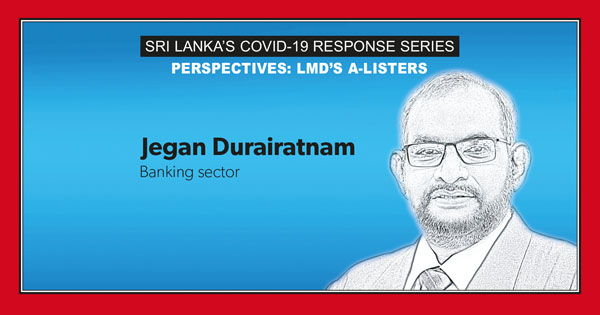PRINTING MONEY IS A NECESSARY EVIL
Q: How do you view Sri Lanka’s COVID-19 response so far? What are the pros and cons?
A: Sri Lanka’s response to the pandemic has been commendable. While we can all say what could have been done better with the benefit of hindsight, what’s important is that Sri Lanka has placed a greater value on lives than the economy. For a small country with limited resources this is a tough decision but the authorities are doing their best to alleviate the suffering caused by the lockdown.
Giving priority to students who are the future of the country during the repatriation of nationals stranded in foreign countries has been noteworthy as well.
The state has recognised the importance of finance to the economy and declared the financial services industry as an essential service to ensure a smooth flow [of money]. It has also taken measures to expand liquidity in the system while easing the financial stress on those most affected the crisis – by easing obligatory repayments and improving access to new source of finance.
Indeed, the economy will suffer in the short term with local production and distribution affected; foreign markets for our goods and supply chains for the manufacturing industry have been severely disrupted. Other key contributors to the national economy including worker remittances and earnings from tourism have also slowed down.
In contrast, the drastic fall in crude oil prices is one silver lining as this greatly reduces the nation’s outflows.
Q: In your view, how should the authorities balance the twin imperatives of safety and the economy?
A: The safety of individuals cannot be compromised. Simultaneously however, the government has to take steps to cushion the negative fallout from the virus; revive the economy and put it on a growth path; and ensure the continued health and stability of the financial system.
The government and the Central Bank of Sri Lanka will have to work together to revive the economy. The burden must be shared by everyone – i.e. from those with the greatest ability to those with the greatest need. The state must set an example by cutting unwanted and unnecessary expenditure while deriving optimal outputs from existing resources.
An economic stimulus package will be required to revive industries that are vital to the economy and are on the verge of collapse. Instead of outright grants, the state should consider a debt-equity model by taking equity stakes in these companies in consideration of any financial assistance provided – and hopefully, exiting with financial gains when the economy recovers.
The support of international lenders is crucial. Much like the government has mandated a debt moratorium for those affected locally, international lenders will also have to consider similar concessions for nation states that are undergoing financial stress.
Q: As for state finances, should we print money despite the obvious repercussions and/or seek more funding from global lending institutions and other channels?
A: Printing money at this time is a necessary evil – the need of the hour is to provide liquidity to markets to keep them functioning normally while providing finance to sectors that need it.
With the lockdown in place, the government’s revenue streams – mainly in the form of taxes – will be stifled; and as such, printing may be the only option. Relying on more foreign currency denominated debt at a time when our forex generating sources are under pressure could exacerbate the debt trap we’re already ensnared in. In the face of a recession, this will not bode well for the nation.
Inflation is a risk, but due to the effects of the pandemic, aggregate demand is likely to be subdued and this will contain inflationary pressures. Secondly, with the agriculture industry enjoying good harvests, food prices should abate. Complemented by the fall in crude oil prices, I believe that inflationary pressure can be kept in check.
[wprpw_display_layout id=2]





